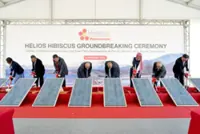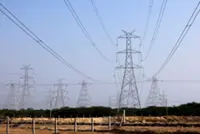JAKARTA: The government has relaxed its local content requirements for solar power projects financed by foreign investors, as it seeks to expedite renewable energy development in the country and boost the domestic solar panel industry.
Rachmat Kaimuddin, undersecretary for transportation and infrastructure at the Office of the Coordinating Maritime Affairs and Investment Minister, said on Aug 7 that the move would help Indonesia unlock funding from international partners to build its renewable energy supply.





